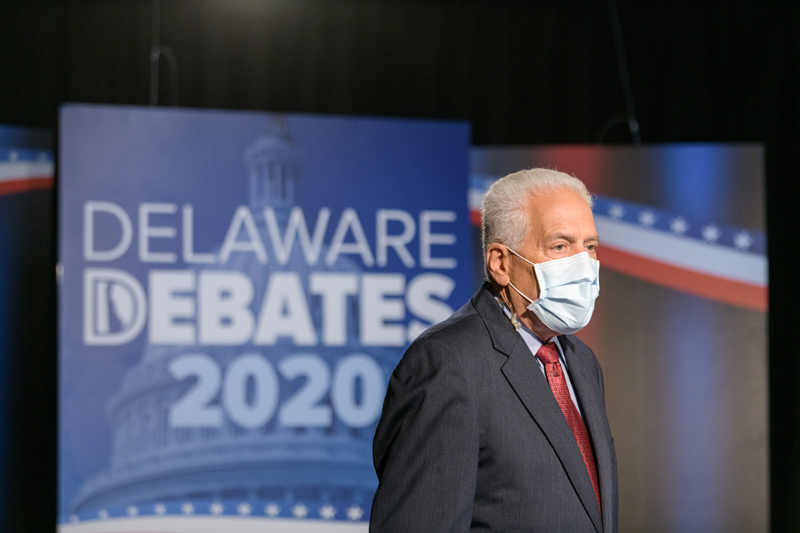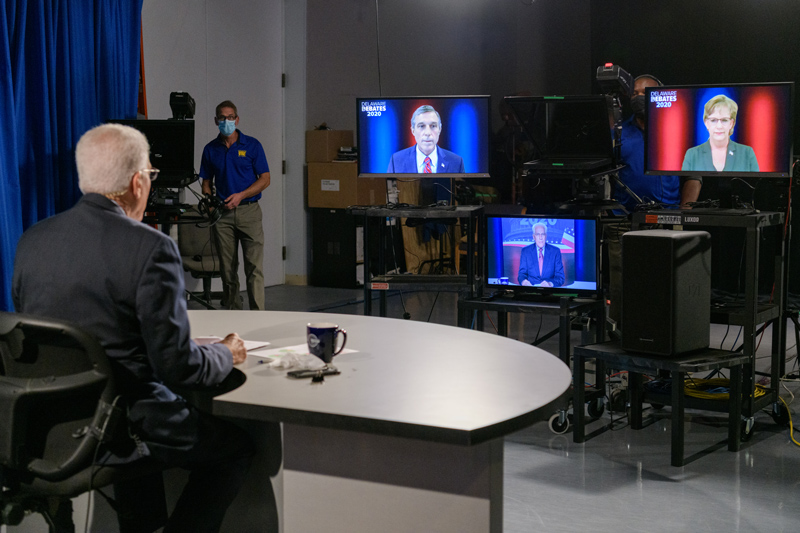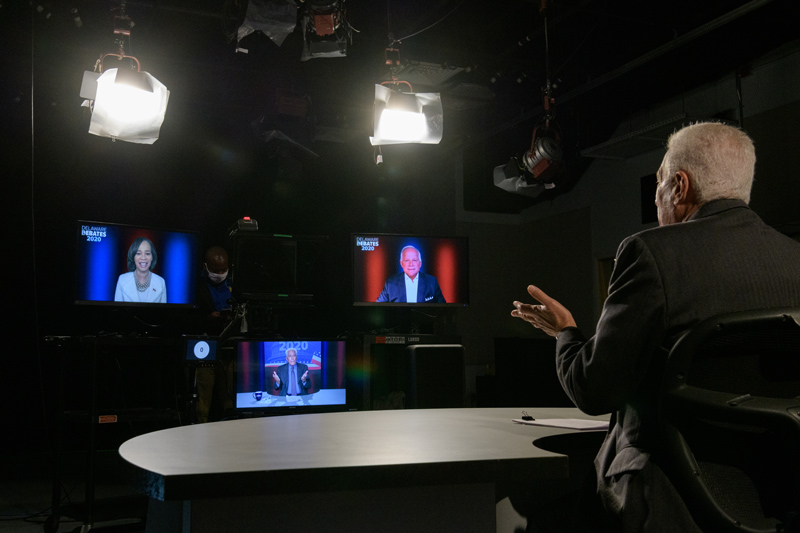


Delaware Debates
Photos by Evan Krape and Kathy F. Atkinson October 15, 2020
Candidates for statewide offices meet in virtual format
Candidates for governor of Delaware and for the state’s single seat in the U.S. House of Representatives answered questions and discussed issues in Delaware Debates 2020, a virtual event hosted by the University of Delaware’s Center for Political Communication (CPC) and Delaware Public Media.
The hour-long debates were held on consecutive nights, beginning on Tuesday, Oct. 13, when the major-party candidates for governor, incumbent Democrat John C. Carney Jr. and Republican challenger Julianne E. Murray, met.
On Wednesday, Oct. 14, the major-party candidates for the U.S. House of Representatives faced off, with incumbent Lisa Blunt Rochester, a Democrat, debating Republican Lee Murphy.
No session in the U.S. Senate race was held this year, as incumbent Democrat Christopher A. Coons said he was unable to participate in a UD debate with his Republican challenger, Lauren Witzke.
The debates, which have been a tradition every election year since 2010, are normally held on the UD campus before a large audience and broadcast live. This year, the event instead was livestreamed — with each candidate on camera in their home location and no in-person audience — to follow health and safety precautions during the current coronavirus (COVID-19) pandemic.

Moderator Ralph Begleiter, the retired founding director of the CPC and a former CNN journalist, posed questions from a studio on campus, where he and the production staff followed careful COVID prevention guidelines. In addition to Begleiter’s questions, the candidates also fielded questions from Delaware Public Media reporter Sophia Schmidt and from several UD students and members of the public, who appeared via video.
Each debate was notable for its adherence to strict time limits for each candidate’s answers and closing statements and for the participants’ civility, with no interruptions or name-calling.
In the gubernatorial debate, the initial round of questions and answers centered on the state’s response to the coronavirus pandemic, particularly in its disproportionate impact on communities of color and on workers in the food processing industry. The candidates were also asked for their plans for reviving the state’s economy and making up for the revenue lost because of the pandemic.
Other topics focused on funding for schools, especially those with many low-income and at-risk students, and on violence in the city of Wilmington, homelessness, mail-in voting, racial justice and policing, measures to address climate change, property tax reassessments, the Electoral College and the legalization of marijuana.
In their closing statements, Carney spoke of plans to bring people together to address the critical needs of the state’s health and economic recovery and to emerge from the pandemic stronger than ever. Murray argued that career politicians in a state that’s increasingly dominated by one party are out of touch with the concerns of most Delawareans, who she said have lost many of their freedoms in recent years.

The U.S. House debate covered many of the same issues related to the pandemic, the economy, racial justice and climate change, with the questions focusing on the role of the federal government in addressing these and other challenges.
Specific questions included the Trump administration’s response to the pandemic, the future of the Affordable Care Act and what if anything might replace it if the Supreme Court strikes it down, the rising federal budget deficit, building in areas vulnerable to floods and other disasters, the right to abortion under Roe v. Wade, social media’s accountability for posted content, incentives for renewable energy, and cybersecurity, especially during elections.
In the candidates’ answers and their closing statements, Blunt Rochester spoke often of the important role the federal government can and should play in addressing many of today’s challenges, while Murphy argued that in many cases, the issues were best addressed by local officials or state governments.
Contact Us
Have a UDaily story idea?
Contact us at ocm@udel.edu
Members of the press
Contact us at 302-831-NEWS or visit the Media Relations website

